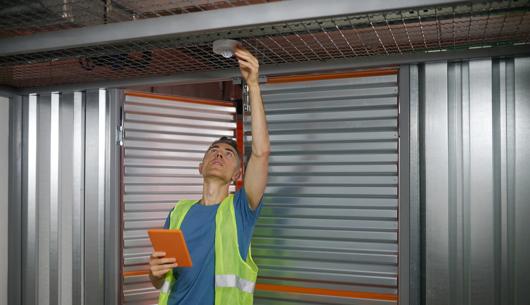This article, relating to Irish law, was written by the team in our Dublin office for Browne Jacobson Ireland LLP
Back in February 2013, Ireland, along with 24 other EU Member States, signed the Agreement on a Unified Patent Court (the “UPCA”). The UPCA provides for the establishment of the Unified Patent Court (“UPC”), an international patent court between contracting states. The UPC became operative on 1 June 2023.
Before Ireland can officially join the Unified Patent Court (“UPC”), it must amend its Constitution to add the UPCA as an international agreement. This is due to the fact that the UPCA provides for a transfer of jurisdiction in patent litigation from Irish courts to the UPC as an international court.
On 23 January 2024, the Irish Government approved a proposal to hold a referendum in June of this year in relation to whether the Constitution should be amended to allow for Ireland to participate in the UPC.
What is the UPC?
The UPC is a common patent court designed to provide a ‘one-stop-shop’ for litigating patents. The decisions of the UPC will be binding on all participating EU Member States, of which there are currently 17.[1] It is still open for the remaining EU Member States who signed the UPCA, to ratify it into their national law.
The UPC operates to provide a ‘uniform, specialised and efficient framework’ for patent litigation at a European level. The UPC has exclusive jurisdiction in respect of ‘classic’ European patents, European patents with unitary effect (“Unitary Patents”), and it hears both infringement and revocation actions.
The UPC’s exclusive competence includes hearing the following:
- Actions for actual or threatened infringements of patents and supplementary protection certificates and related defences, including counterclaims concerning licences;
- Actions for declarations of non-infringement of patents and supplementary protection certificates;
- Actions for provisional and protective measures and injunctions;
- Actions and counterclaims for revocation of patents and for declaration of invalidity of supplementary protection certificates;
- Actions for damages or compensation derived from the provisional protection conferred by a published European patent application;
- Actions relating to the use of the invention prior to the granting of the patent or to the right based on prior use of the invention;
- Actions for compensation for licenses on the basis of Article 8 of Regulation (EU) No. 1257/2012; and
- Actions concerning decisions of the European Patent Office (“EPO”) in carrying out the tasks referred to in Article 9 of Regulation (EU) No. 1257/2012.
The UPC Structure
The UPC consists of a Court of First Instance, a Court of Appeal and a Registry. It is also intended that the UPC will have a Patent Mediation and Arbitration Centre based in Lisbon and Ljubljana to support parties in the settlement of disputes related to patents.
The UPC consists of judges from all over the EU and panels are created comprising of both legally and technically qualified judges with rounded expertise in patent litigation.
1. The Court of First Instance
The Court of First Instance consists of central divisions, regional divisions and local divisions.
- Central Division
The central division takes its seat in Paris but is spread across three locations: Paris, Munich and Milan. Cases are distributed across the different locations of the central division in accordance with Annex II of the UPCA (as amended). For example, the Paris seat can hear cases pertaining to textiles, fixed constructions, and physics, while Munich can hear cases relating to chemistry or mechanical engineering.
The central division sits in a multinational composition of two legally qualified judges and one technically qualified judge.
- Local and Regional Divisions
Under Article 7 of the UPCA, a local division can be set up in a contracting Member States where it is requested in accordance with the Statute of the UPC (the “Statute”). Under the Statute, a request must be made to the Chairman of the Administrative Committee. The contracting Member State hosting the local division, is responsible for designating its seat.
A regional division can be set up where two or more contracting Member States request it in accordance with the Statute. Similar to the above, the request must be made to the Chairman of the Administrative Committee. The contracting Member States in that instance, shall also designate where the seat is located. However, the regional division may hear cases in multiple locations. For example, there is currently a Nordic Baltic Regional Division which can hear cases in either Stockholm, Riga, Tallinn, or Vilnius.
The local divisions sit in a multinational composition of three legally qualified judges and the current regional division also sits in a multinational composition of three legally qualified judges.
- Determining what division should hear an action
Article 32 of the UPCA identifies the competence of the UPC and which actions it can hear. The UPCA then further stipulates how it is decided which division of the Court of First Instance will hear a case, taking into consideration what type of action is being brought.
For example, in certain circumstances, the correct local division is determined by criteria such as where the actual or threatened infringement has occurred, or where the defendant is resident, etc. However, depending on the action, parties may also agree between themselves to bring the action before the division of their choosing, including the central division.
Article 33 of the UPCA further clarifies the instances in which actions are brought before the central division, as opposed to the local or regional divisions. For example, actions for a declaration of non-infringement of patents and supplementary protection certificates shall be brought before the central division.
If a contracting Member State concerned does not host a local division and does not participate in a regional division, actions should be brought before the central division. Therefore, if Ireland does not request and establish its own local division, cases will be heard by the central division.
2. Court of Appeal
The Court of Appeal sits in Luxembourg. It hears appeals of decisions from the Court of First Instance and where there are requests for the rehearing of final decisions. The Court of Appeal sits in a multinational composition of three legally qualified judges and two technically qualified judges, unless the panel is dealing with an action under Article 32(1)(i) of the UPCA, which pertains to decisions of the EPO in carrying out the tasks referred to in Article 9 of Regulation (EU) No. 1257/2012 (i.e. the administrative tasks of the EPO). In which case, the panel is a multinational composition of three legally qualified judges.
3. Registry
The Registry’s role is to carry out the administrative and procedural tasks for the UPC and is led by a Registrar. The UPC Registry is located in Luxembourg with the Court of Appeal, but there are sub-registries at every division of the Court of First Instance which are managed by the Deputy-Registrars.
What’s next for Ireland?
There have been other countries, such as France, which have availed of the transition period of up to 7 years from the date of entry into force of the UPCA, for the UPCA to be fully operative in that jurisdiction. The purpose of such a transition period is to allow for patents to be dealt with either through the UPC or through the national courts depending on the case.
If, following the referendum in Ireland, the Constitution is to be amended to add the UPCA as an international agreement to the Constitution, Ireland would then need to ratify the UPCA into Irish law. It is currently unclear whether Ireland would seek to implement a similar transition period to that availed of by France. Therefore, it is unclear when Ireland will be officially involved with the UPC.
Once enrolled in the UPC, Ireland will also need to decide whether it will request and establish its own local division or whether all of its cases will be heard by the central division. To date, Malta and Bulgaria are the only contracting Member States which haven’t established their own local division.
Ultimately, Ireland’s involvement with the UPC will depend on the outcome of the referendum in June 2024. Ireland’s inclusion would be a welcomed development as it is one of the last English-speaking common-law jurisdictions in the EU. Ratification of the UPCA will be beneficial to anyone who is doing business, or has high value IP assets, in Ireland.
If you have any queries in relation to the matters outlined above, please feel free to contact us.










































